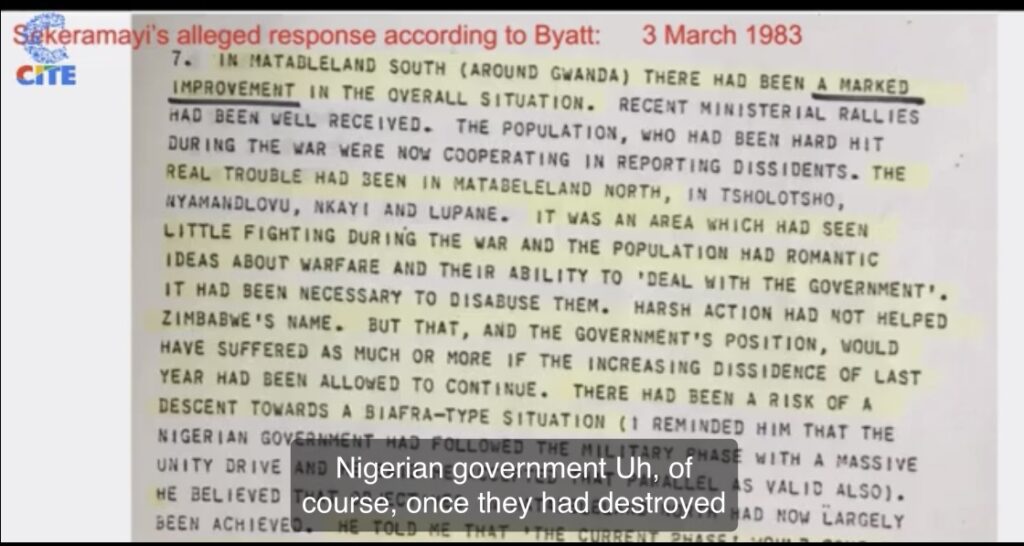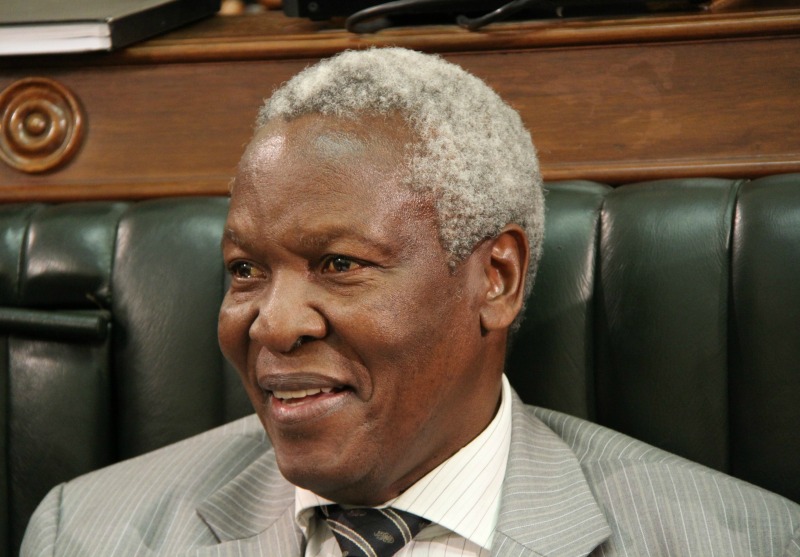Former Defence and State Security Minister, Sydney Sekeramayi allegedly said that ‘harsh’ action was necessary in Matabeleland during the 1980s in order to deal with dissidents.
In 1983, Sekeramayi who was the Minister of State for Defence in the Prime Minister Robert Mugabe’s office, said had action not been taken to reign in the situation in Matabeleland, it could have turned out to be that of Nigeria’s Biafra.
The Biafra Civil war was fought between the government of Nigeria and the Republic of Biafra, a secessionist state, which had declared its independence from Nigeria in 1967 where more than a million people died in the brutal war.
These revelations were presented by a history lecturer from Kent University in the United States, Professor Timothy Scarnecchia, during an online lecture on Gukurahundi and the Cold War Wednesday at the ongoing annual Healing and Reconciliation Film Festival, hosted by the Centre of Innovation and Technology (CITE).
The film festival is running under the theme: Power of Memory.
Prof Scarnecchia argued that the British knew about the Gukurahundi genocide was well known by the British, as they were in constant discussions with Zanu officials within Zimbabwe’s government.
The historian quoted documents from declassified archives from meetings that occurred on March 3, 1983, between UK High Commissioner, Robin Byatt and Sekeramayi where the former was being critical of Zimbabwe’s government.
“Byatt thought Zimbabwe’s image and international reputation would suffer badly over the reports of violence that had been appearing were it to continue over a protracted period of time. Byatt told Sekeramayi that they needed to balance military and political necessities in the region, to stop the excesses of the violence but what is interesting here is Sekeramayi’s response back to him according to Byatt,” Prof Scarnecchia said.
“Sekeremayi interestingly divides the region of Matabeleland, talks about Matabeleland North ( Tsholotsho, Nyamandlovu, Nkayi and Lupane), saying it was an area where the population had ‘romantic ideas about warfare and their ability to deal with the government. It had been necessary to disabuse them.’”

Prof Scarnecchia indicated that Sekeramayi’s sentiments of using harsh action as necessary was a very clear statement of intent of waging war against the populace in Matabeleland.
“There was a calculated notion of punishing the population and not just going after dissidents that were originally the cover or rationale for unleashing the Fifth Brigade. But clearly, it was more than that, it was war against the civilians and here you have Sekeramayi making that claim to the UK High Commissioner Byatt,” said the historian.
The historian highlighted that Sekeremayi referred to Gukurahundi, as a kind of “Biafra-type situation.”
“To which even Byatt responded that even in the Biafra war, the Nigerian government of course, once they had destroyed (Biafra), used starvation tactics as well. He argues anyways that the government of Nigeria had followed up with the development and political phase which Byatt was claiming the government of Zimbabwe should do. Sekeramayi said that the action would be over this weekend (that weekend of March 1983) and the army would be told to stand still,” Prof Scarnecchia said.

